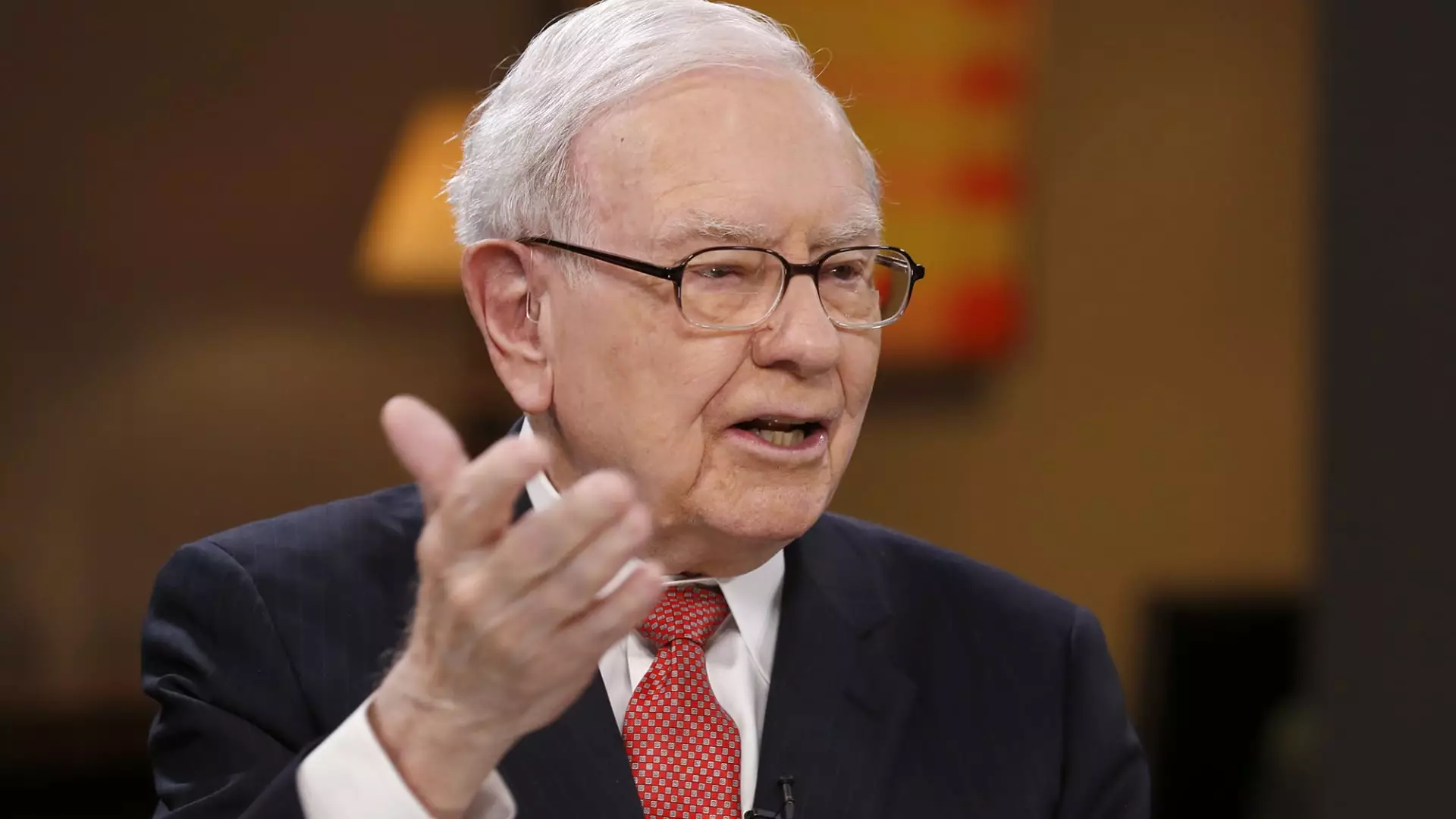A Shift in Strategy: Berkshire Hathaway’s Investment Moves Raise Eyebrows

Berkshire Hathaway, the conglomerate helmed by the legendary Warren Buffett, has long maintained an aura of mystery regarding its investment strategies and market outlook. However, recent actions, particularly from its seasoned executives, are stirring discussions among investors about the company’s future and, possibly, the broader market sentiment.
Ajit Jain, the stalwart insurance chief of Berkshire Hathaway for four decades, made headlines this week by divesting more than half of his stake in the company, amounting to a significant $139 million. This was not only a notable financial transaction but also marked the largest selling of Berkshire shares by Jain since he took on the role in 1986, alongside Buffett. This sale is particularly intriguing against the backdrop of Berkshire’s stock reaching an all-time high, with Class A shares closing above $700,000 and the company achieving a monumental market capitalization of over $1 trillion for the first time as a non-tech entity in the United States.
Trade analysts are suggesting that such a sizable sale may indicate Jain’s belief that Berkshire stocks are becoming less appealing. With Berkshire Hathaway’s stocks experiencing nearly a 24% gain in 2024, outpacing the S&P 500, which is up 18%, Jain’s actions may be interpreted as a signal to the market that the stocks may now be fully valued. The celebrated founder of Check Capital Management, Steve Check, emphasized this sentiment, reinforcing the notion that these sales reflect a belief that the intrinsic worth of the business is well-reflected in its stock price.
In alignment with Jain’s movements, Warren Buffett, often regarded as the “Oracle of Omaha,” has shown remarkable restraint regarding stock buybacks. The company repurchased a mere $345 million worth of its own shares last quarter, a stark contrast to the $2 billion bought back during each of the previous two quarters. Such conservative maneuvers suggest that Buffett perceives the current stock price to be reflective of its true value. His historical approach to buybacks emphasizes only purchasing shares when they are undervalued, seeking to avoid what he deems “value-destroying” investments.
Buffett has tempered expectations for Berkshire’s performance, suggesting that as the company matures, its growth may only marginally surpass that of average American corporations. He articulated this sentiment in his recent annual letter, indicating a strategic shift in philosophy as larger companies face increased difficulties in identifying impactful investment opportunities. Buffett’s remarks suggest a balancing act between seeking growth and preserving capital, emphasizing that in today’s climate, maintaining a robust position with significantly diminished risk is of paramount importance.
Another layer of concern surfaces with Buffett’s ongoing sell-off of substantial stakes in key holdings like Bank of America and Apple. Since mid-July, Buffett has divested over $7 billion from Bank of America, trimming his ownership down to approximately 11%, while simultaneously making headlines with a notable sell-off of his Apple shares. Despite these reductions, Apple remains a cornerstone of Berkshire’s portfolio.
Interestingly, this marked trend of selling has persisted for seven consecutive quarters, accelerating in the second quarter, where Buffett sold off equities exceeding $75 billion. The total value of stocks divested in the first half of 2024 exceeds $90 billion. Such aggressive selling actions may reflect Buffett’s view of inflated market valuations and signify a cautious or perhaps bearish outlook for the broader market.
Berkshire Hathaway’s recent investment strategies, highlighted by significant sell-offs and reduced buyback activity, present a complex but insightful image of the company’s current standpoint in the market. The actions of key figures like Ajit Jain and Warren Buffett suggest a cautious narrative, potentially foreshadowing a cautious future amid a complex economic landscape. While the stock’s performance remains noteworthy, the substantial divestments indicate a readiness to navigate uncertain waters, urging investors to reassess their outlook on the company and the market as a whole. As the investing community watches closely, the unfolding narrative at Berkshire Hathaway underscores the perennial balance between growth and capital preservation in an evolving financial landscape.





